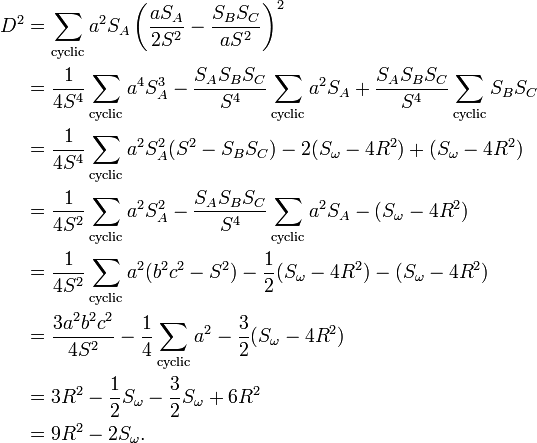Conway triangle notation
In geometry, the Conway triangle notation, named after John Horton Conway, allows trigonometric functions of a triangle to be managed algebraically. Given a reference triangle whose sides are a, b and c and whose corresponding internal angles are A, B, and C then the Conway triangle notation is simply represented as follows:
where S = 2 × area of reference triangle and
in particular
 where
where  is the Brocard angle.
is the Brocard angle.
 for values of
for values of  where
where 
Hence:
Some important identities:
where R is the circumradius and abc = 2SR and where r is the incenter,  and
and 
Some useful trigonometric conversions:
Some useful formulas:
Some examples using Conway triangle notation:
Let D be the distance between two points P and Q whose trilinear coordinates are pa : pb : pc and qa : qb : qc. Let Kp = apa + bpb + cpc and let Kq = aqa + bqb + cqc. Then D is given by the formula:
Using this formula it is possible to determine OH, the distance between the circumcenter and the orthocenter as follows:
For the circumcenter pa = aSA and for the orthocenter qa = SBSC/a
Hence:
This gives:



















